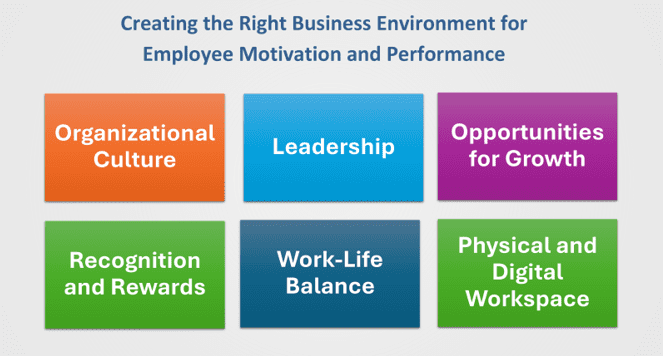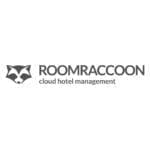 Leadership often becomes entangled with formal positions and hierarchical structures. The common misconception prevails that leadership is solely determined by rank. However, in the intricate dance of influence and trust, true leadership transcends organizational charts.
Leadership often becomes entangled with formal positions and hierarchical structures. The common misconception prevails that leadership is solely determined by rank. However, in the intricate dance of influence and trust, true leadership transcends organizational charts.
Breaking the illusion of authority
Leadership, at its core, is not about wielding authority; it is about inspiring trust and fostering genuine connections.
“The greatest leader is not necessarily the one who does the greatest things. He is the one who gets the people to do the greatest things.” – Ronald Reagan
This encapsulates the essence of leadership – the ability to ignite passion and commitment in others, irrespective of one’s position in the hierarchy.
In many instances, individuals occupying the highest echelons of an organization may possess authority, but that alone does not make them leaders. We find ourselves complying with their directives due to the power they hold, but trust and genuine followership remain elusive. The absence of a deep connection between leader and team exposes the fallacy of equating leadership solely with rank.
The power of a conscious choice
Contrastingly, genuine leadership emerges from a conscious choice rather than a bestowed title. Many individuals at lower levels of organizations who wield no formal authority, yet can have an impact that reverberates throughout the workplace. These unsung leaders make a choice – a choice to extend their focus beyond personal success and embrace the responsibility of looking after the person to their left and the person to their right.
Embracing leadership as a responsibility
Leadership, when stripped of the illusion of authority, reveals itself as an awe-inspiring responsibility. It is the commitment to elevate those around us, creating an environment where aspirations and dreams transform into tangible realities.
Imagine a workplace where individuals, regardless of job titles, become catalysts for positive change. Each one of us possesses the ability to be the leader we yearn for. It commences with a conscious decision to prioritize the well-being of those around us, irrespective of our position in the organizational hierarchy, becoming the architects of a thriving work culture.
A great leader’s courage to fulfill his vision comes from passion, not position. -John C. Maxwell
This wisdom, when applied to leadership, beckons us to be authentic in our choices — to lead in a manner that resonates with our values and aspirations. Choosing to be authentic leaders transforms our impact beyond the confines of the workplace; it evolves into
The role of leadership principles in organizational culture
Leadership principles serve as the North Star, guiding an organization through the ever-changing business landscape. When meticulously defined and seamlessly woven into the organization’s culture, these principles become the cornerstone of a consistent decision-making and behavioral framework. This consistency extends its influence across various facets, from hiring decisions to the processes of product development, ultimately fostering a unified and purpose-driven organizational culture.
Fostering a culture of trust and accountability
In organizations where leadership principles are embraced, a profound transformation occurs, giving rise to a culture characterized by trust and accountability. Employees, feeling the pulse of a culture built on a foundation of principled leadership, find themselves empowered to voice opinions, take calculated risks, and contribute authentically to the collective success.
This culture of trust and accountability, born from the embodiment of leadership principles, becomes a catalyst for innovation and collaboration. It creates a space where individuals are not restrained by fear but are encouraged to bring their authentic selves to the professional table, fostering an atmosphere of creativity and shared responsibility.
Aligning actions with values
The true impact of leadership principles lies in their ability to bridge the often-elusive gap between rhetoric and action. These principles ensure that organizational values aren’t relegated to mere words but are vividly reflected in the everyday decisions and interactions of every individual within the organization.
Take, for instance, Google’s iconic emphasis on “Do the right thing” as a guiding principle – whether you agree with its rightful implementation or not. Beyond being a catchphrase, it acts as a constant reminder for employees to align their actions with the company’s ethical standards. This alignment is not a passive adherence, but an active, conscious choice made by individuals at every level of the organization. It transforms organizational values from abstract concepts into lived experiences, shaping the character of the workplace.
When leadership principles are effectively integrated into the organizational DNA, the alignment of actions with values becomes a natural extension of the company’s identity. It creates a culture where ethical considerations are not exceptions but integral components of decision-making processes. This alignment fosters a sense of shared purpose, where individuals collectively strive to uphold the values that define the organization.
In essence, the role of leadership principles in organizational culture extends far beyond being a set of guidelines. They are the architects of a culture where trust, accountability, and ethical considerations are not just ideals but lived realities, shaping the collective journey of the organization toward success and sustainability.
Extending leadership beyond teams
Leadership isn’t confined to internal teams; it extends to our interactions with clients and the broader professional community. When we make a deliberate choice to see our clients rise, to champion their ambitions and dreams, we transcend the transactional nature of business relationships.
Leading clients with integrity
Consider the relationship between a financial advisor and a client. The advisor can choose to merely execute transactions and meet financial targets, or they can choose to be a leader in their client’s journey to financial well-being. This leadership involves understanding the client’s aspirations, providing guidance beyond the immediate transaction, and creating a lasting impact on their financial success.
Leaders, whether in managing teams or serving clients, understand the importance of integrity and long-term relationships. The choice to lead clients involves a commitment to doing the right things, even when it might be easier to take shortcuts.
The ripple effect of client-centric leadership
Leading clients with a genuine commitment to their success creates a ripple effect. Satisfied clients transform into enthusiastic advocates, fostering a positive reputation that surpasses business transactions. This organic promotion attracts more opportunities, creating a symbiotic relationship where client success contributes significantly to the overall success and growth of the business.
The fulfilling nature of empowering others
The foundational duty of leadership, as highlighted previously, is to witness the ascent of those around us. This responsibility extends beyond internal teams and client relationships, to create an environment where individuals feel empowered to pursue their ambitions and dreams. In this capacity, leaders transform into enablers of success, facilitators of growth, and advocates of the human spirit.
Authentic leadership, ingrained in the emotional experiences of those guided, transcends the transactional aspects of business. It leaves a profound and lasting impact, evoking an enduring sense of both support and empowerment.
In the pursuit of leadership, the fulfillment derived from empowering others surpasses personal achievements. It becomes a journey of shared victories, collective growth, and the satisfaction of knowing that you played a role in someone else’s success.





















